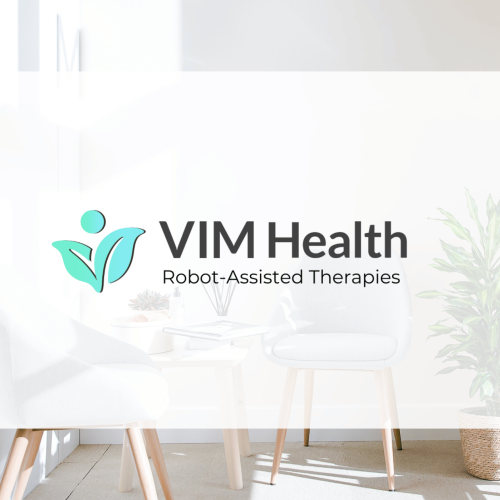Outpatient brain injury rehabilitation is an important part of the recovery process for people that have suffered from both traumatic and non-traumatic brain injuries.
Because brain damage and injury can come with a wide range of symptoms and after effects, to enable the best recovery possible, a person must have access to a full range of rehab options.
This article covers the types of brain injury, symptoms, and the outpatient rehabilitation options that are available when it comes to recovering as much function and mobility.
Types Of Brain Injury
Acquired brain injury is the umbrella term used to cover non-degenerative brain injuries that are either traumatic or non-traumatic. These injuries have occurred after birth, as opposed to conditions that are genetic and present at birth, for example.
Traumatic brain injuries are usually caused by blunt force trauma to the head. There is a range of situations that could cause a traumatic brain injury, including car accidents, falls or assaults.
Non-traumatic brain injuries acquired after birth are caused by medical conditions or events. This can include strokes, tumours, hypoxia, metabolic disorders, or drug and alcohol abuse.
Degenerative brain disorders, usually called neurodegenerative, include conditions such as Alzheimer’s, Huntington’s disease, Parkinson’s disease, Motor neuron disease, and Multiple system atrophy. The focus of this article though is acquired brain injuries.
How Can Brain Injuries Affect People?
Acquired brain injuries can affect people in a wide variety of ways, both physical and emotional. The severity of the effects can vary between people too. Here are some of the ways brain injuries can affect people:
- Movement and coordination issues
- Spasticity
- Headaches and fatigue
- Seizures/fits
- Weakness, shaking or stiffness of the limbs
- Changes to sleeping pattern
- Changes to senses
- Changes to personality
- Mood swings, anxiety, depression
- Speech and swallowing difficulties
- Memory problems and confusion
- Difficulty concentrating
- Incontinence problems
As mentioned, the issues experienced can be physical, emotional, or behavioural – a person may have a mixture of all three, or just physical issues, for example.
These types of injuries can be devastating for people because lasting side effects can impact daily life. After a brain injury a person may lose all independence, and be unable to perform tasks themselves, such as dressing, eating etc.
Relationships with others can also become strained because of communication difficulties, mood swings, and many other factors.
Because the impact of an acquired brain injury can be so serious, it’s vital that people start therapy, when they are ready, to regain as much independence as possible.
Can You Be Rehabilitated After Brain Injury?
A mild brain injury such as a concussion can usually be recovered fairly quickly (within three months) with no lasting effects.
with moderate and severe brain injuries it can sometimes be more difficult to predict long-term outcomes. It can be many months before an estimated timeline can even be given. Because there are so many variable factors with brain injuries (which part of the brain was damaged, length of time the person was in a coma etc), outcomes can also be variable between individuals.
With both moderate and severe brain injuries, significant rehabilitation is usually needed, again, the length of time spent in rehabilitation depends on the severity of injuries, desired outcomes and the patient’s ability. Not forgetting, of course, the level of access the individual has to rehabilitative treatments.
Rehabilitation can certainly help though, and in many cases, people can adjust to having some lasting side effects and just focus on a few key recovery objectives.
What Is Outpatient Brain Injury Rehabilitation?
A patient will usually be ready for rehabilitation as soon as their doctors and medical team have confirmed that a person has recovered sufficiently enough to leave the hospital. This means a person will be ‘out of the woods’, no longer receiving critical care, or need extended stays in the hospital. After an injury or brain injury incident, a person may need further surgeries or to stay in a specialist rehabilitation hospital.
Of course, being discharged from the hospital doesn’t mean a person is recovered, because recovery can take a long time – sometimes months and years for moderate or severe injuries, it would be impractical to remain an inpatient for this entire period.
At this point, people will seek outpatient brain injury rehabilitation. This can start as soon as a person is declared fit for rehabilitation, or in some cases, a person may decide to wait a while or there may be a period whilst the most appropriate sort of rehab treatment is found.
Outpatient rehabilitation for people recovering from brain injuries can include:
- Physical therapy
- Occupational therapy
- Speech therapy
- Emotional support therapy
The aims of outpatient brain injury therapy include:
- Increase ability to perform daily tasks
- Improve movement
- Increase independence
- Reduce pain
- Improve bladder and bowel function
- Prevent complications such as pressure sores
- Return to work
- Improve speech and language
- Increase confidence
- Improve mental health or wellness
Rehabilitation for all of the above may often include a comprehensive plan that involves several different providers.
Outpatient Brain Injury Rehabilitation At VIM Health
VIM Health provides a range of outpatient rehabilitation therapies for people recovering from brain injuries. Our holistic approach to rehab means our treatment encompasses everything from hands-on physical therapy to the use of state-of-the-art robotic technology.
Our services are provided on an outpatient basis at our flagship treatment centre where we have an experienced multi-disciplinary team of brain injury rehab experts.
In addition, we are also pleased to offer intensive rehabilitation (or short-term inpatient) programmes for people that require more intense treatment plans.
If you are ready to start your rehabilitation journey, please don’t hesitate to contact us and book your first assessment consultation.
